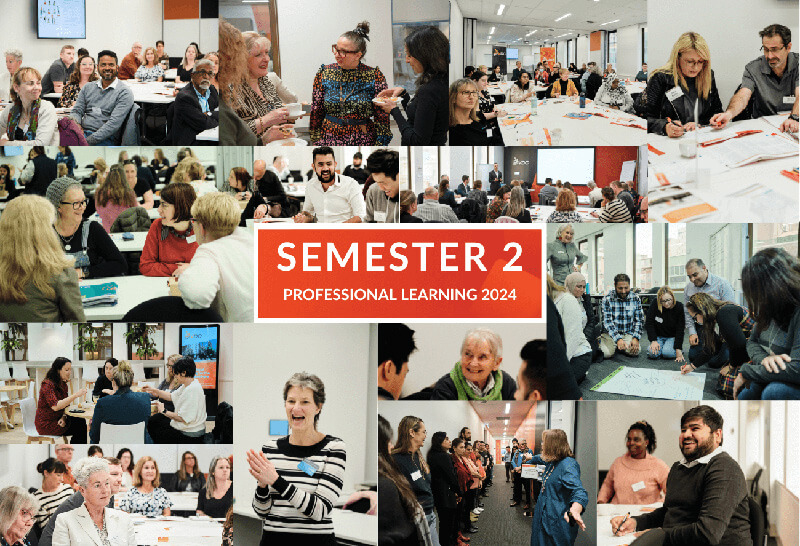Queensland recently released its skills strategy for 2024 to 2028. Entitled Good Jobs, Great Training, it aims to set “the direction for the state’s training system to support the state’s growing and changing workforce over the next 5 years” in its 24 pages. They also published a 12 page summary paper.
The strategy identifies three megatrends for skilled workforce needs: (1) Clean energy, the transition to net zero and climate change adaptation, (2) Digital transformation and (3) Demand for skills and workers across the care and community services economy to deal with an ageing population and increasing demand for formal care.
Usefully, it also talks about skills pathways, ranging from getting people Career Ready (Providing the skills and support to choose a career and get their first job), moving to Career Start to provide the skills and support people need to start their career, and finally to Career Boost, which provides the skills needed for ongoing career development.
It also notes that, through the consultation process not only were a number of system strengths identified, but also a range of areas in which improvements were needed were identified (see page 23 of the strategy).
So, in summary and over the next five years, there are 5 focus areas the strategy covers:
- Skills or good jobs
- Training that has the power to change lives
- TAFE for all Queenslanders
- A training system backing Queenslanders, and
- Being quality and results driven.
To address the first focus, the strategy is wide ranging and will:
- Better target investment in qualifications that deliver high-quality job outcomes that align with economic opportunities in Queensland
- Support students and workers to develop foundation skills including language, literacy, numeracy and digital skills
- Extend and expand access to higher-level skills and encourage lifelong learning
- Create greater connections and pathways between training and higher education sectors to meet Queensland’s workforce needs
- Support emerging skills needs through innovative training solutions such as micro-credentials and accredited skill sets
- Deliver a regional, rural and remote strategy to increase access to quality face-to-face training that meets the skills needs of regional and remote communities, and employers and industry, and
- Support people with relevant industry experience to reskill as trainers and assessors in areas of industry shortage.
For the second focus, it will:
- Support students to access training for jobs in demand at all career stages, from skills to get their first job to upskilling and reskilling
- Provide access and the support needed to gain skills for well-paid and secure jobs for all Queenslanders – particularly women, First Nations peoples, young and mature age people, long-term unemployed, people with disability, people from culturally and linguistically diverse communities, and regional and remote learners
- Provide support to students to help them complete courses and qualifications aligned with their aspirations
- Strengthen the pathways from school to work through a new TAFE-led Career Ready VET in Schools program for secondary school students, with TAFE leading delivery of funded training and more Trade Tasters for school students, supported by a network of quality Skills Assure Suppliers. This will complement work underway through the Queensland Workforce Strategy to improve access to high quality career information for school students
- Work with stakeholders to increase opportunities for work experience and industry connections for students, and
- Work with Skills Assure Suppliers to improve student outcomes, such as student completion, employment and support measures.
Third, there is a strong TAFE focus in the strategy, as there is nationally. Over the next five years, the strategy aims to:
- Deliver more Free TAFE places to ease cost-of-living pressures and open doors to good jobs for all Queenslanders
- Support sustainable, responsive and vibrant TAFE at the heart of the training system by building on the strengths of TAFE to deliver training aligned to national and state priorities
- Deliver upgraded and new TAFE facilities as part of the management, development, investment and transformation of publicly owned TAFE assets over the next decade
- Support TAFE to ensure training is available in specialised fields, in priority industries and in communities right across Queensland, and
- Work with the Australian Government to deliver the National Skills Agreement priorities, including TAFE Centres of Excellence and the TAFE leadership network.
Many of those consulted in preparing this strategy spoke about “the value of training as a powerful changemaker that opens doors and is critical for local economies.” Proposed initiatives in this fourth focus include:
- Raising awareness of the value and availability of training and skills for Queenslanders, employers and industry, and communities
- Making information about training options and pathways easier to access for students, apprentices and trainees, and employers and industry
- Advocating for Queensland’s training and skills needs, shape national priorities that help the economy to grow and make sure Queenslanders have the skills needed for the future
- Delivering on shared priorities through delivery of the five-year National Skills Agreement with the Australian Government, and
- Partnering with industry, employers and unions to deliver a high-performing training system.
Finally, the strategy talks about developing a quality and results driven system, including by:
- Publishing an annual Training Priorities Plan which sets out the objectives and priorities for Queensland Government-funded training
- Informing investment decisions through skills needs and data analysis, industry advice, government social and economic priorities, and student outcomes
- Managing the government-funded training system to deliver on economic priorities, localised place-based training solutions and better support for students
- Establishing new systems to better monitor the outcomes and performance of the Queensland training system, and
- Providing independent advice and support to Queenslanders to navigate the training sector through the Queensland Training Ombudsman.








